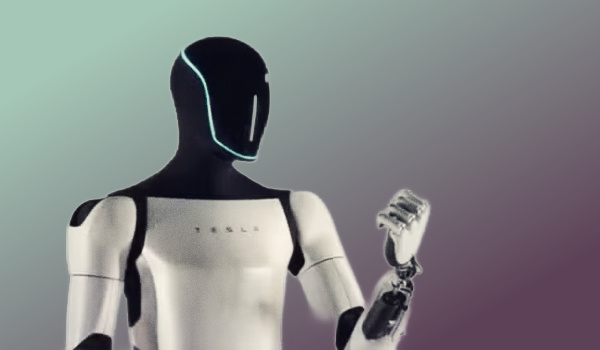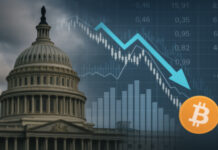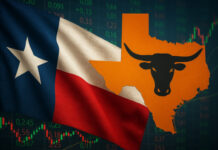Publisher’s Note: This week we are proud to feature the thought leadership of our intern at DWN, Nicole Nieves, a broadcast journalism major at Penn State University. Nicole is quite passionate about the utilization of AI and its many impacts and potential challenges to society and recently approached us to write a piece on Tesla’s Optimus robots. We were happy to oblige, but also asked her to expand the scope to encompass a recent historical perspective of some other famous AI-based robots in this piece. Please enjoy the thought leadership of our most talented intern and get a perspective on how our nextgen friends view this “emerging” technology. CLT/DWN
By Nicole Nieves, Penn State University
Robots have endlessly intrigued the human imagination, representing both symbols of hope and fear. From the earliest myths of mechanical beings to the advanced AI robots like Pepper and Sophia, they reflect humanity’s relentless drive to innovate. AI and robots are becoming an increasingly important part of our daily lives, especially in the financial sectors.
In fact, on December 16, President-elect Donald Trump and SoftBank CEO Masayoshi Son
announced a $100 billion investment in the United States from various sources controlled by Softbank, aiming to create 100,000 American jobs. This investment will focus on artificial intelligence, emerging technologies, and critical infrastructure, with plans to complete it before the end of Trump’s term in 2029. Son expressed increased confidence in the U.S. economy following Trump’s election, stating that this optimism motivated the substantial commitment. So clearly, AI is front and center for this incoming administration.
As someone who enjoys learning about robots and their role in advancing society, I’d like to share my perspective on Tesla’s new Optimus robots and their potential impacts. Yet before diving into detail, I’d like to further bring attention to the robots and AI that are paving the way and reshaping our future.
First off, let’s explore chatbots. These computer programs are used for banking while robot-advisors are used for investment guidance to help customers with basic questions and advice. There are also tools like Pepper, which are used in retail banking, to enhance customer experiences by offering friendly, interactive services. We can compare Pepper to Sophia, which serves as an ambassador for AI, blending human-like interactions with future goals, while at the same time spreading awareness of the potential of advanced robotics. To add, Sophia symbolizes ongoing debates about AI ethics, rights, and its integration into society.
It’s no secret that AI is continuously becoming a big part of our lives, especially in how decisions are made. Although AI systems help analyze market trends and give advice to financial companies, it raises questions about who is responsible if the decisions go wrong and whether we can fully trust machines. Beyond finance, AI is reshaping industries like healthcare and education, yet many worry about how it affects privacy and the security of personal data. People (including myself) are excited about what AI can do, but there are without a doubt serious concern about ethics and safety.
One of the newer unveilings in AI is Tesla’s Optimus robot, introduced on September 30, 2022, at AI Day, which represents Tesla’s ambitious venture into humanoid robotics. In 2024, Optimus has continued to advance with capabilities such as autonomous navigation, object manipulation, and repetitive task execution. I’m impressed. It’s powered by a 2.3 kWh battery and uses Tesla’s proprietary AI and Full Self-Driving (also known as FSD) technology.
In 2023, Tesla demonstrated enhanced hand precision and movement, emphasizing its potential to revolutionize industries like manufacturing and logistics. Looking ahead, Elon Musk has hinted that Tesla will be targeting a broader rollout of Optimus around 2026, focusing on affordability and widespread adoption to transform the economy and labor landscape.
Elon Musk, known for his work with OpenAI and Tesla, talks a lot about the benefits and dangers of AI. Musk warns us that if AI grows too fast without control, it could become a problem, like how robots are sometimes shown in movies as dangerous or taking over. At the same time, Musk’s innovations, like self-driving cars, show how AI can improve automation and even finance.
I agree with Musk’s perspective because he essentially summarizes the concept of AI and robotics as both thrilling and a cause for concern. On one hand, I do recognize the incredible potential for robots like Pepper and Sophia to enhance our lives, whether through personalized assistance, healthcare, or education. These advancements symbolize inventiveness and the overall hope of making our everyday tasks easier.
Yet on the other hand, I share concerns about the rapid pace of AI development and the possible risks if it grows unsupervised. The idea that robots could replace jobs or create ethical dilemmas resonates with me because we’ve seen how disruptive technologies can reshape economies and societies. Balancing the benefits of AI while addressing its risks (such as potential misuse or loss of human control) is crucial for the sustainable future that we all want.
Looking ahead, robots like Pepper, Sophia, and Tesla’s Optimus have the potential to not only make life better, but to also transform different industries including logistics, manufacturing, customer service, and more. I believe that Optimus truly represents the next generation of AI-driven robotics, with a guaranteed promise of increasing efficiency while reducing the use of human labor. However, as we learn about how robots like Pepper and Sophia impact personalized services and human interactions, we must also deeply analyze how Optimus could significantly impact the labor market.
By understanding both the opportunities and challenges presented by robots, we can make it our goal to use them wisely and responsibly. Robots and AI symbolize both our hopes for the future and our fears, and they remind us of the importance of balancing innovation with ethical decision-making.
For those interested in exploring these technologies further, here are some resources.
Pepper: https://emea.softbankrobotics.com/case-study-page
Sophia: https://www.hansonrobotics.com/sophia/
Optimus: https://www.tesla.com/AI
 Nicole Nieves is a social media intern for Digital Wealth News and AI&F and a third-year undergraduate student at Penn State University, majoring in broadcast journalism with a minor in digital media trends & analytics. She is also studying to receive the Smeal College Business Fundamentals Certificate and Presidential Leadership Academy Certificate. Nicole just finished this fall semester as a videographer for Penn State Athletics, where she covers Penn State sports events and media.
Nicole Nieves is a social media intern for Digital Wealth News and AI&F and a third-year undergraduate student at Penn State University, majoring in broadcast journalism with a minor in digital media trends & analytics. She is also studying to receive the Smeal College Business Fundamentals Certificate and Presidential Leadership Academy Certificate. Nicole just finished this fall semester as a videographer for Penn State Athletics, where she covers Penn State sports events and media.







